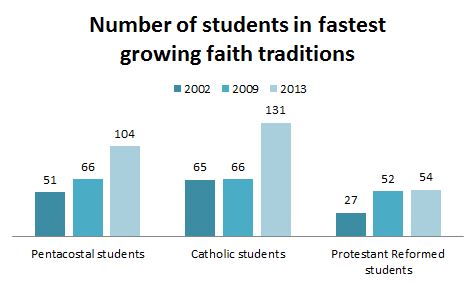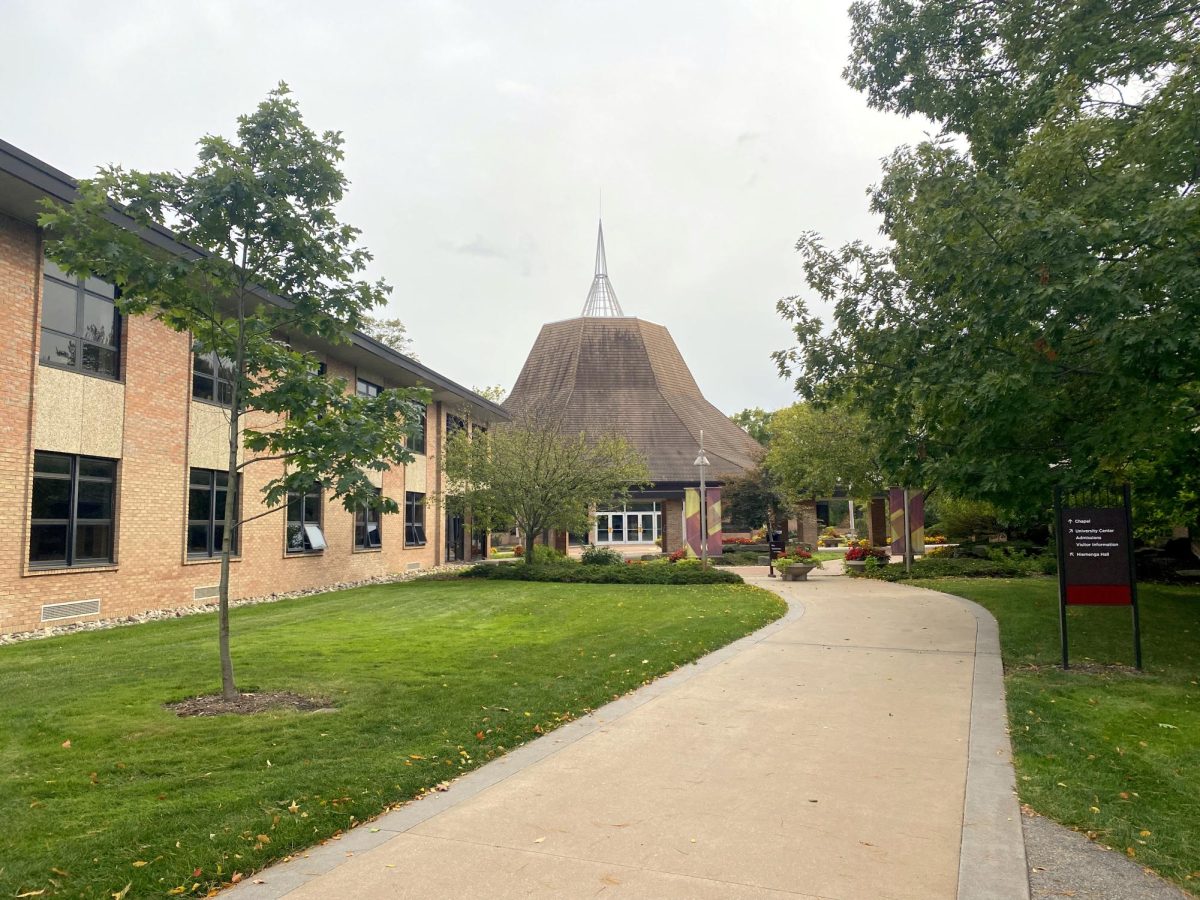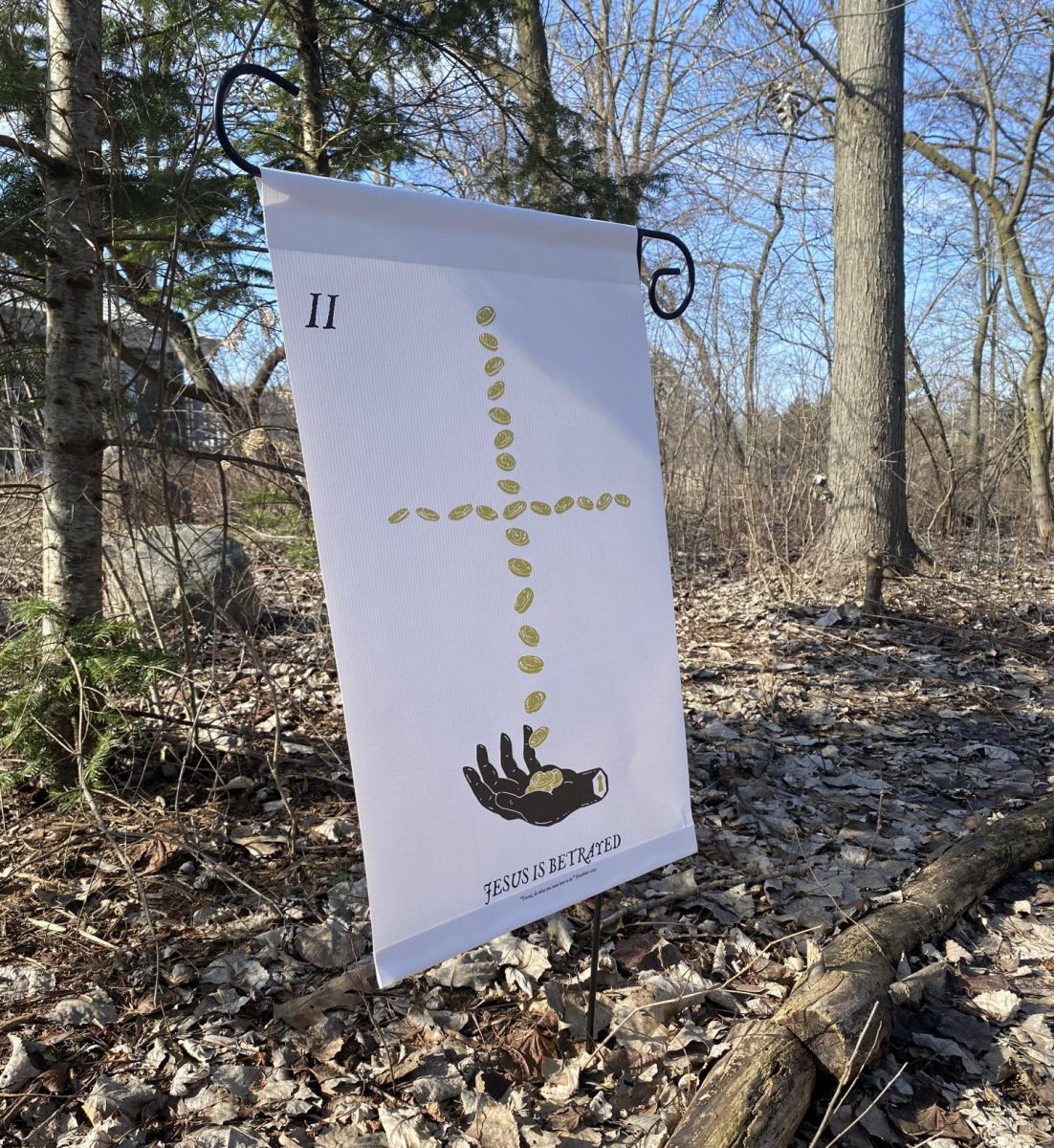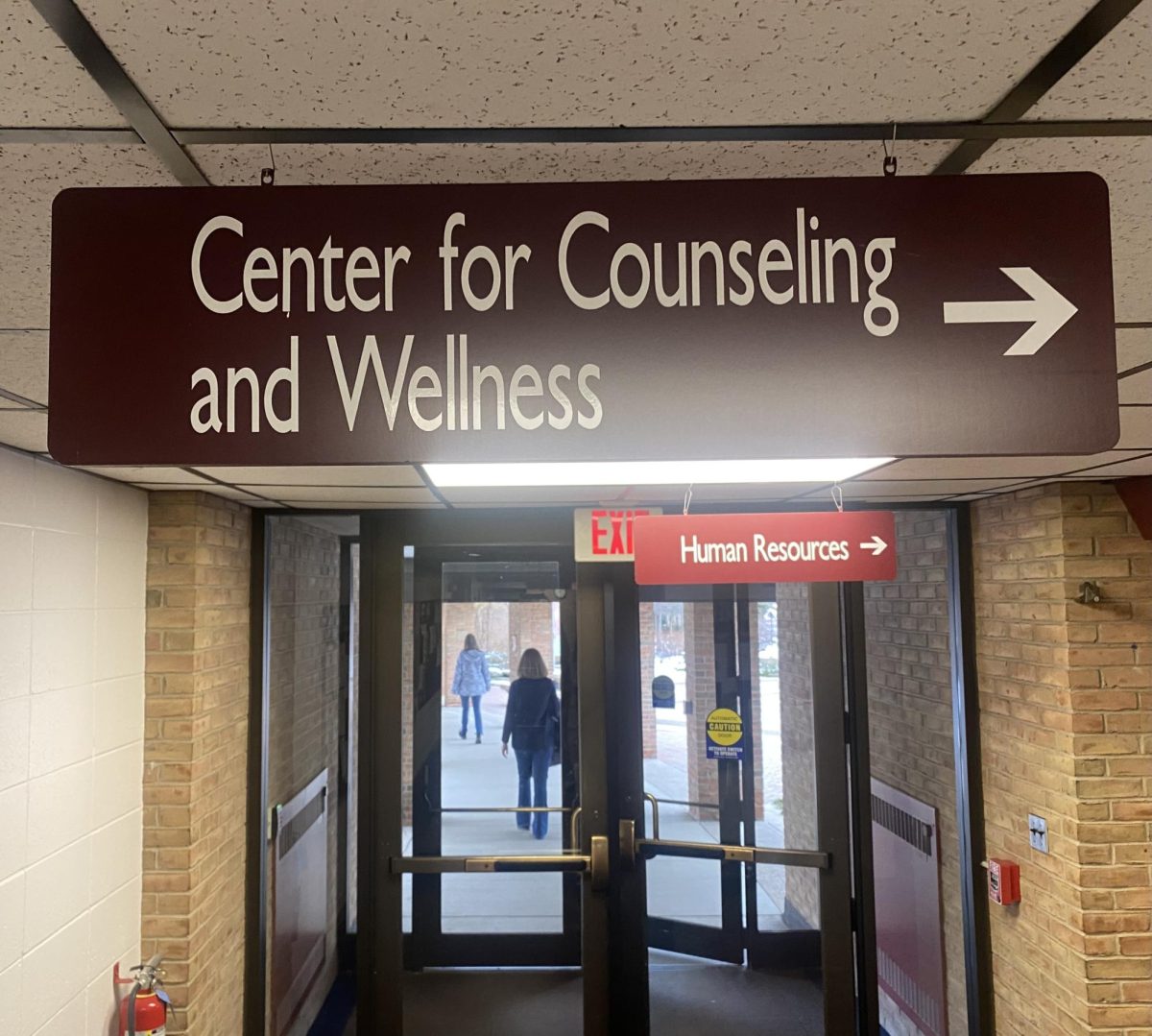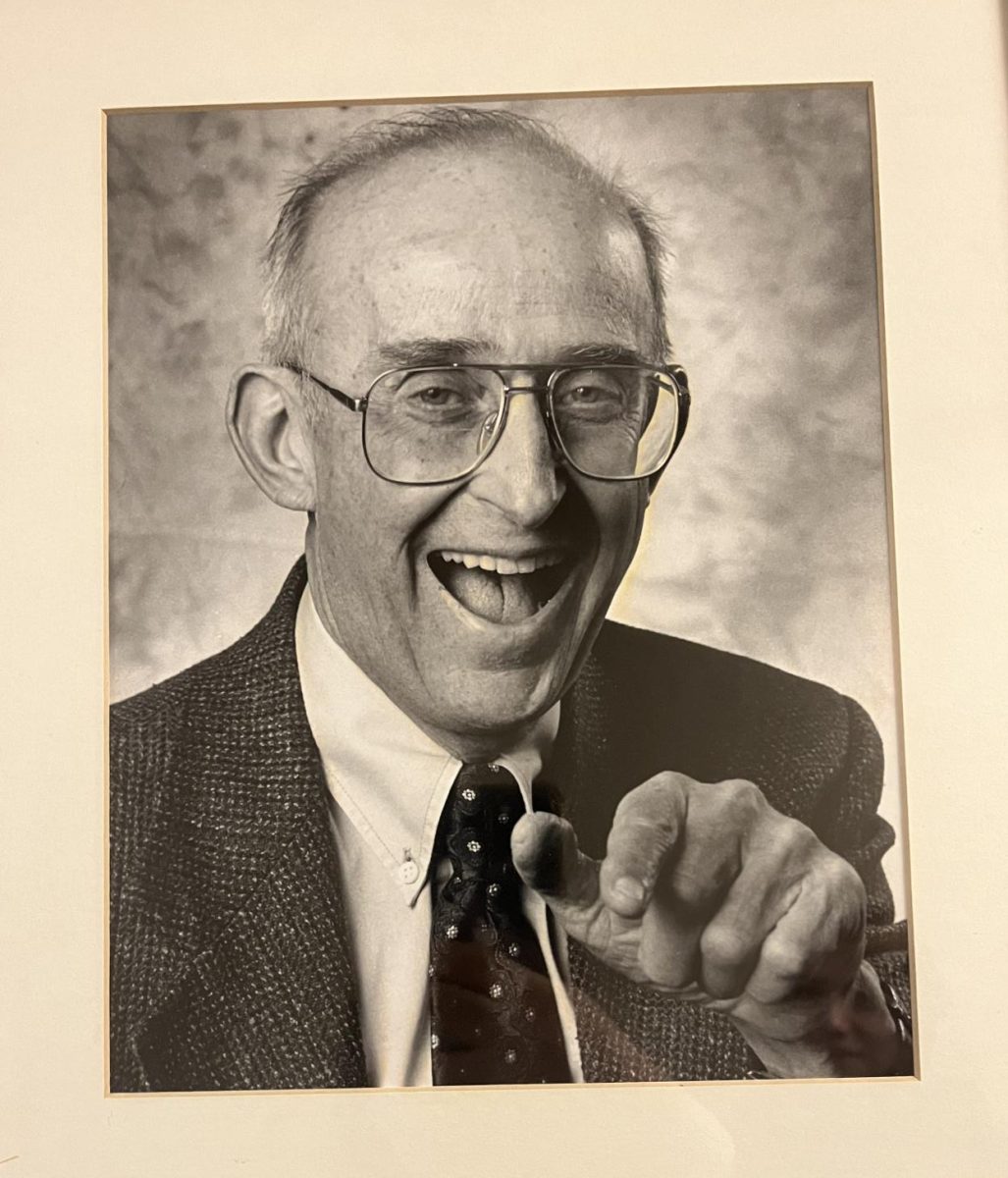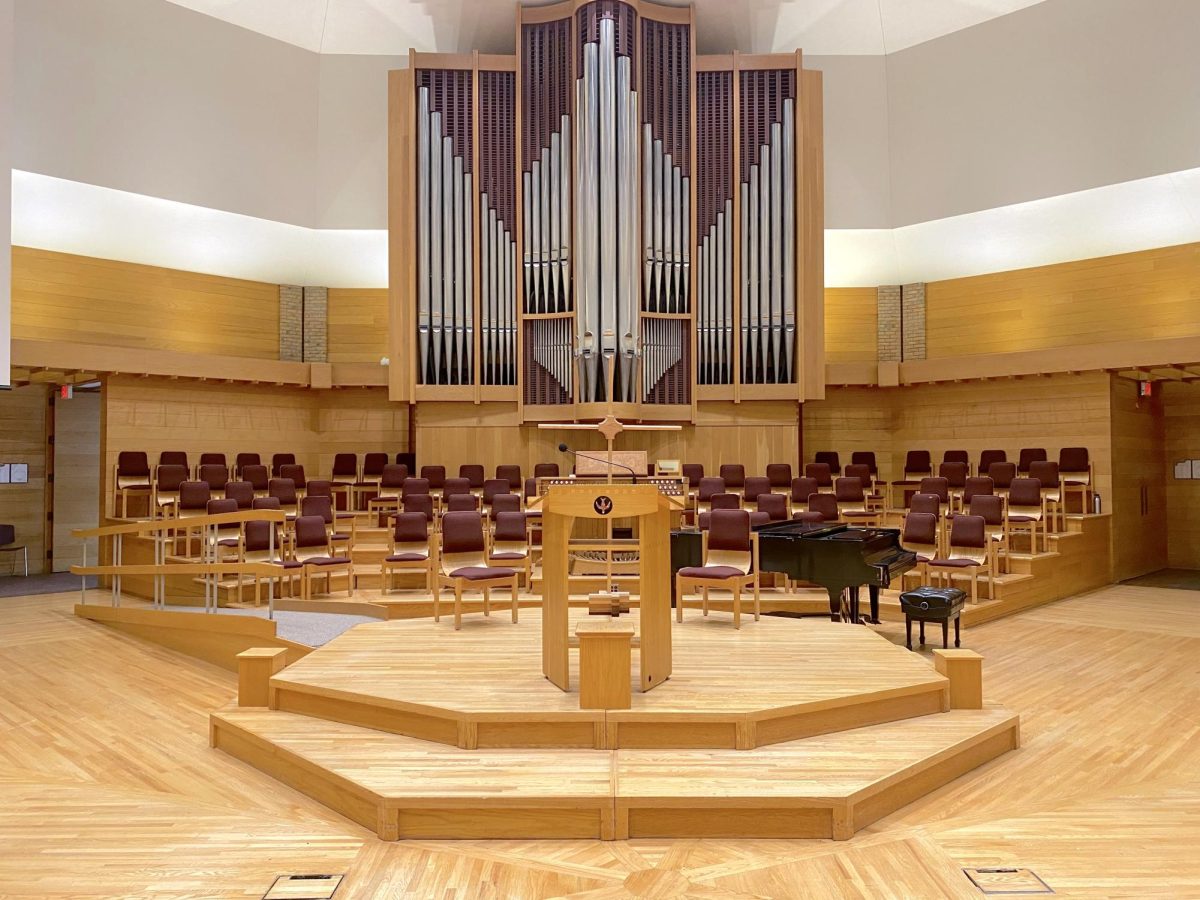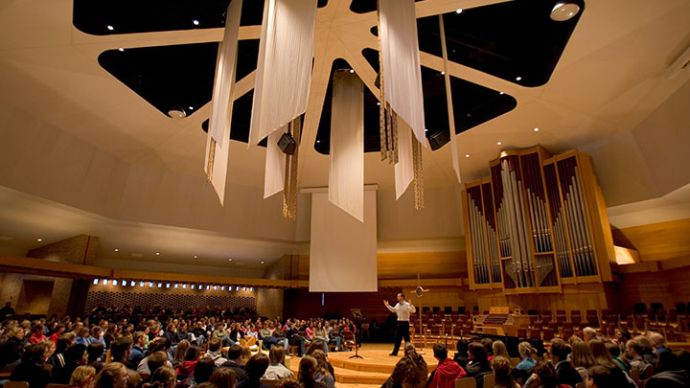Although Pentecostalism is one of the fastest-growing faith traditions at Calvin, now with over 100 Pentecostal students at Calvin (including Assemblies of God), some Pentecostal students feel the Calvin community’s awareness and understanding of their faith tradition has not grown.
“I feel like the CRC community at Calvin is really not knowledgeable about Pentecostal beliefs and actions,” Pentecostal junior Laura Wheeler said. “I’ve just heard a lot of stereotypes.”
“I would say [Pentecostalism] is definitely marginalized,” Pentecostal-raised junior Josiah Majetich said.
Wheeler believes that misconceptions on campus surrounding Pentecostalism are perpetuated through broader stereotypes.
“[Several years ago] you would see Pentecostals ‘slain in the spirit,’” said Wheeler, referring to the religious behavior of being struck to the ground, “but I haven’t seen that happen since then, and I think that’s where a lot of people gain their misconceptions. I haven’t seen anyone roll on the floor or laugh uncontrollably.”
Wheeler said that in some ways, Pentecostals are not all that different from any other tradition.
“I think [Pentecostals and the CRC] have similar beliefs, but we act them out differently,” said Wheeler. “But all I really care about is your relationship with God, and if you love God and I can see that through you, it doesn’t matter to me what denomination you are.”
Majetic said he felt the CRC’s influence at Calvin very strongly, sometimes in opposition to his Pentecostal tradition.
“[Calvin] is not necessarily accommodating,” said Majetich, “because a central part of the Pentecostal community is high energy worship and that’s not here at Calvin. Liturgy [ritualized, formal and Eucharistic worship] is the antithesis of the fluidity of Pentecostalism.”
However, Majetich said he was refreshed in some ways by what he called the Calvinist “liturgy,” as contrasted with his Pentecostal “fluidity.” Because he felt like Calvin did not accommodate his Pentecostal upbringing, he was exposed to new methods of practicing Christian faith.
“As someone who doesn’t connect with the emotional side of faith,” said Majetich, “[the CRC tradition] revitalized my faith by reassuring me that I could be a Christian without exhibiting the traits of being Pentecostal.”
However, he said he misses what Pentecostalism had to offer during his upbringing, how he felt its “hard ideology” allowed him to discover truth in a more dynamic way.
Majetich does not think it is Calvin’s responsibility to expand its practices to include Pentecostal approaches.
“I don’t think they should [be more hospitable towards Pentecostal students],” said Majetich. “I don’t think that’s Calvin’s role, really. I think the two are different. That’s okay.”
Wheeler did, however, voice feelings of judgment and segregation she felt from some classes.
“I had a professor a few weeks ago say something about who he thinks we’ll see in heaven,” said Wheeler, “and he said, ‘Our Pentecostal brothers and sisters — even though I don’t agree with the things they do — I think they’ll be up there too’. Of all the different denominations, why did you have to pick Pentecostals to point out? I think it perpetuates misconceptions about Pentecostals.”




